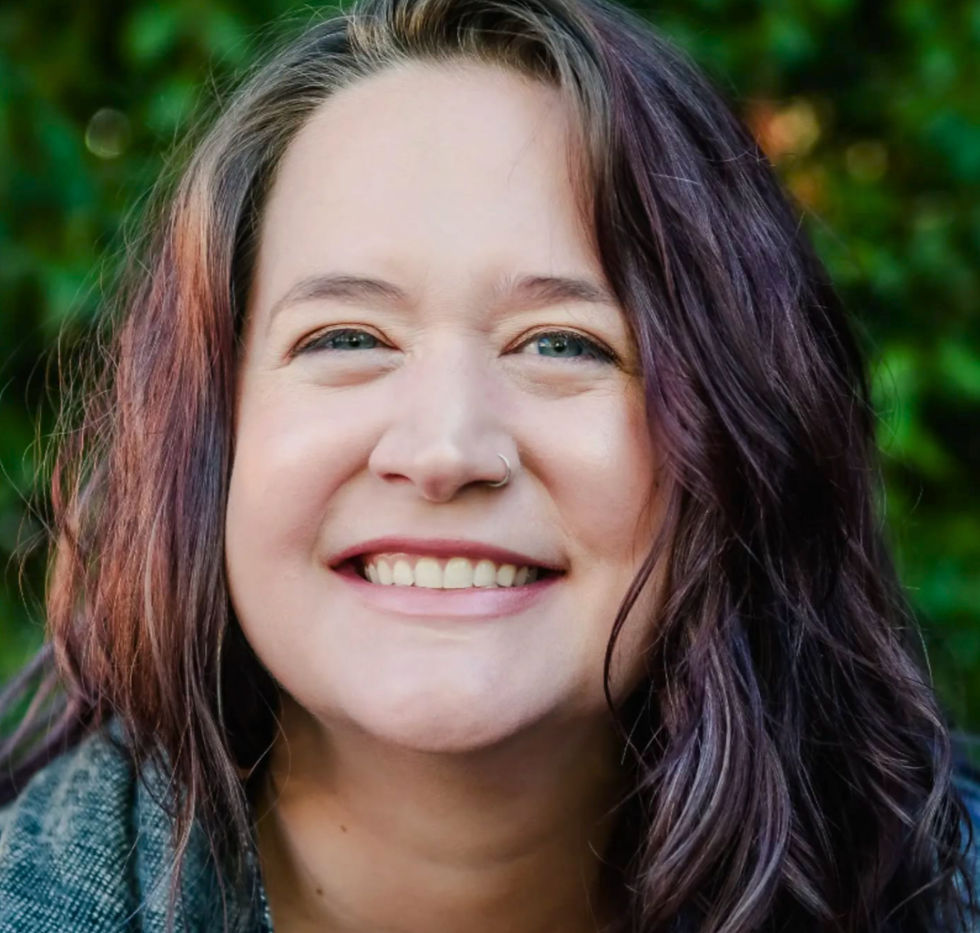S3. Ep.113: Liz Gray, LCSW | Infertility, Advocacy, and the Importance of Trauma-Informed Care
- Jessica Lamb
- Jun 4, 2025
- 4 min read

When Care Falls Short
Liz and her husband didn’t originally set out on an IVF journey. But when conception didn’t come easily, they made an appointment at a fertility clinic near home. The doctor, known for her public persona and medical credentials, seemed like an obvious choice — but the reality was far from what Liz expected.
“I thought she would be this kind, warm provider because of her background. But the process felt rushed. My trauma history and reasonable requests were dismissed. I was treated like a number.”
Despite her professional training as a trauma therapist, Liz found herself overwhelmed and hurt. But instead of shutting down, she listened to the fire in her gut — the one that said something had to change.
A Turning Point
After a failed IUI cycle and a retreat that coincided with the disappointing news, Liz had a pivotal moment of clarity. "I knew I needed to do something with infertility advocacy. I didn’t know what yet, but I knew this wasn’t just my story — it was so many people’s story."
She began rebuilding: switching clinics, interviewing new providers with intention, and asking hard questions. “How are you trauma informed?” became her leading inquiry.
At the same time, she began dreaming up what would become the Trauma Informed Maternal Health Directory — a resource she wished she’d had from the beginning.
What Trauma-Informed Fertility Care Looks Like
The second clinic she chose wasn’t perfect, but it was different — and better. From the first appointment, Liz felt a sense of being seen. Staff asked about her trauma history. She had a dedicated nurse and a pop-up note in her chart. Her doctor gave her a direct line. She felt informed and in control.
But it wasn’t without hiccups. One day, a nurse brought in a student observer without adequate notice. Another time, during a frozen embryo transfer, an unidentified man stood in the room without explanation.
“I froze. In both situations, I didn’t feel like I had the option to say no,” Liz recalls. “Even when you’re asked for consent, the how matters. The when matters.”
To the clinic’s credit, they responded with genuine apologies and a willingness to hear her feedback. She was invited to consult on training staff — a reminder that advocacy can ripple outward.
The Emotional Whiplash of IVF to Pregnancy
After three back-to-back egg retrievals and a successful transfer, Liz became pregnant. But transitioning from infertility patient to expectant mother wasn’t simple.
“You go from weekly ultrasounds to suddenly not being seen for weeks. It’s like being dropped into the ocean,” she says.
This lack of continuity between fertility clinics and OB/midwife care can be jarring, especially for those already feeling vulnerable. Liz’s request for one final scan before transferring care was honored, but she had to advocate for it.
“There’s so much emphasis on getting pregnant — but not enough on what comes after.”
Support That Made a Difference
Throughout her experience, Liz relied on a carefully curated circle of support:
A perinatal mental health-certified therapist who understood the nuances of infertility and trauma
A pregnancy after infertility support group
Body-based care including acupuncture, chiropractic, and massage
A doula who was also her acupuncturist, working with the whole family
“Even if there’s no obvious red flag, trust your gut. If something feels off, you don’t have to justify it. It’s okay to switch providers,” she says.
Building the Resource She Needed
Alongside a like-minded clinician and new friend Olivia, Liz co-created the Trauma Informed Maternal Health Directory — a growing hub of vetted, trauma-informed providers across disciplines.
Every profile includes a required section: How are you trauma informed? The goal is to make provider search easier and more transparent for those navigating pregnancy, postpartum, or loss with trauma in their history.
The directory includes:
Licensed therapists
Doulas
Midwives
Lactation consultants
Pelvic floor therapists
...and more — all with clear qualifications and a shared commitment to compassionate care.
Liz and Olivia also offer free Sunday Series Workshops through their platform, supporting birthing people and professionals alike.
Final Thoughts
Liz’s journey — from fertility trauma to parenthood to advocacy — is a reminder that trauma-informed care isn’t a specialty. It’s a standard that all providers should strive for.
“Whether or not someone has a trauma history, trauma-informed care benefits everyone. But for those who do carry that history, it can be the difference between feeling broken and feeling seen.”
If you’re looking for providers who will meet you with compassion, clarity, and care — or you want to advocate for better systems — Liz’s story is proof that small ripples can lead to real change.
TL;DR
Licensed clinical social worker Liz Gray shares her personal and professional journey through infertility, emphasizing the need for trauma-informed fertility care. She discusses her transition from a disappointing first provider to building a supportive care team, and how her lived experience led to co-creating the Trauma Informed Maternal Health Directory.
How to connect with the guest:
Website: www.maternaltraumasupport.com
: The Mama Making Podcast Mom podcast, Motherhood Podcast, Motherhood Journey, Postpartum Mental Health, Pregnancy, New Mom Support infertility, trauma-informed care, patient advocacy, mental health, support network, IVF










Comments